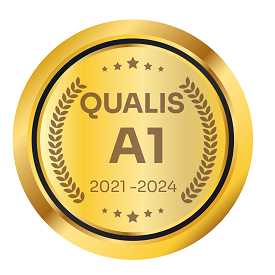Aprendizaje transformacional de docentes
Un análisis de la eficacia
DOI:
https://doi.org/10.22633/rpge.v26iesp.2.16557Palabras clave:
Educación transformacional, Desarrollo profesional sostenible, Modelo de aprendizajeResumen
Los autores del artículo consideran la educación transformacional como una formación de desarrollo profesional sostenible. Su aparición está asociada con los intentos de resolver muchos estados de crisis de la sociedad, que indican los fenómenos destructivos de cualquier sociedad, independientemente de su formación socioeconómica y modelo político de desarrollo social. Muchos científicos reconocen que se puede lograr un modelo más sostenible de desarrollo humano a través de la educación. Sin embargo, el modelo de aprendizaje clásico, que ha demostrado su eficacia en los últimos siglos, ahora está experimentando una fuerte presión por parte de las modernas tecnologías de la información. Este artículo introduce a los lectores a sus posiciones teóricas y de investigación principales y universales. Dado que la práctica de implementar el aprendizaje transformacional puede variar no solo según los enfoques conceptuales, sino también las características culturales básicas del país que lo implementa. El artículo describe los resultados del desarrollo profesional transformador de los docentes en Rusia y Kazajstán, demostrando su eficacia.
Descargas
Citas
ABYLKASSYMOVA, A. E. et al. Development of public consciousness in pedagogical education in Russia and Kazakhstan. In: Psychology and Education - ICPE 2018: International Conference on Psychology and Education. “The European Proceedings of Social & Behavioural Sciences EpSBS”. London, UK: ISO London Limited, 2018. ISBN: 978-1-80296-048-8. p. 1–8.
ABYLKASSYMOVA, A. E.; KALNEI, V. A.; SHISHOV, S. E. Formation of public consciousness, spiritual and moral culture of students in the system of continuous pedagogical education. Journal of History Culture and Art Research, v. 7, n. 1, p. 26–33, 2018. DOI: http://dx.doi.org/10.7596/taksad.v7i1.1460
ABYLKASSYMOVA, A. E.; POPEY-OOL, S. K.; SHISHOV, S. E. On the theory of personal identification in the system of continuous pedagogical education (analysis of foreign experience). Bulletin of National Academy of Sciences of the Republic of Kazakhstan, v. 3, n. 379, p. 186-197, 2019.
ACHIEVE. Final next generation science standards released. 9 Apr. 2013. Available: https://www.achieve.org/next-generation-science-standards-released. Access: 10 May 2021.
ARALOVA, E. V. et al. Current youth policy in the cultural and spiritual continuum of Russia. Dilemas contemporáneos: Educación, Política y Valores, v. 7, n. 1, p. 118, 2019.
BOEHNER, J. A. No child left behind act of 2001. Rept. 107-63. In: Report of the Committee on Education and the Workforce House of Representatives. Washington D.C.: US Government Printing Office, 2001.
DARLING-HAMMOND, L.; MCLAUGHLIN, M. W. Policies that support professional development in an era of reform. Phi Delta Kappan, v. 92, n. 6, p. 81-92, 2011.
DEDE, C. (Ed.). Online professional development for teachers: emerging models and methods. Cambridge, MA: Harvard Education Press, 2006.
IVANOVA, O. M. et al. Social institutes in the system of person's socialization in present-day Russia. Dilemas contemporáneos: Educación, Política y Valores, v. 7, n. S10, p. 69, 2019.
KINZER, C.; TAFT, L. What’s best for our students? Outcomes are the driving force at one high-achieving elementary school. Journal of Staff Development, v. 33, n. 5, p. 18-20, 2012.
KURBAKOVA, S. N. et al. Information technologies in education: Application of stream technologies. Revista Inclusiones, v. 7, no. S4-6, p. 265-278, 2020.
MEZIROW, J. A critical theory of adult learning and education. Adult Education Quarterly, v. 32, n. 1, p. 3-34, 1981.
MEZIROW, J. Transformation theory and cultural context: A reply to Clark and Wilson. Adult Education Quartetly, v. 41, n. 3, p.188-192, l991.
U.S. DEPARTMENT OF EDUCATION. Race to the top program: Executive summary. Washington, D.C., 2009. Available:
https://cis.msjc.edu/courses/evoc/639/Resources/RaceToTheTopExecutiveSummary.pdf. Access: 10 May 2021.
VERMUNT, J. D. et al. The impact of lesson study professional development on the quality of teacher learning. Teaching and Teacher Education, v. 81, n. 1, p. 61-73, 2019. https://doi.org/10.1016/j.tate.2019.02.009
Publicado
Cómo citar
Número
Sección
Licencia
Derechos de autor 2022 Revista on line de Política e Gestão Educacional

Esta obra está bajo una licencia internacional Creative Commons Atribución-NoComercial-CompartirIgual 4.0.
Manuscritos aceitos e publicados são de propriedade da Revista on line de Política e Gestão Educacional. É vedada a submissão integral ou parcial do manuscrito a qualquer outro periódico. A responsabilidade do conteúdo dos artigos é exclusiva dos autores. É vedada a tradução para outro idioma sem a autorização escrita do Editor ouvida a Comissão Editorial Científica.











